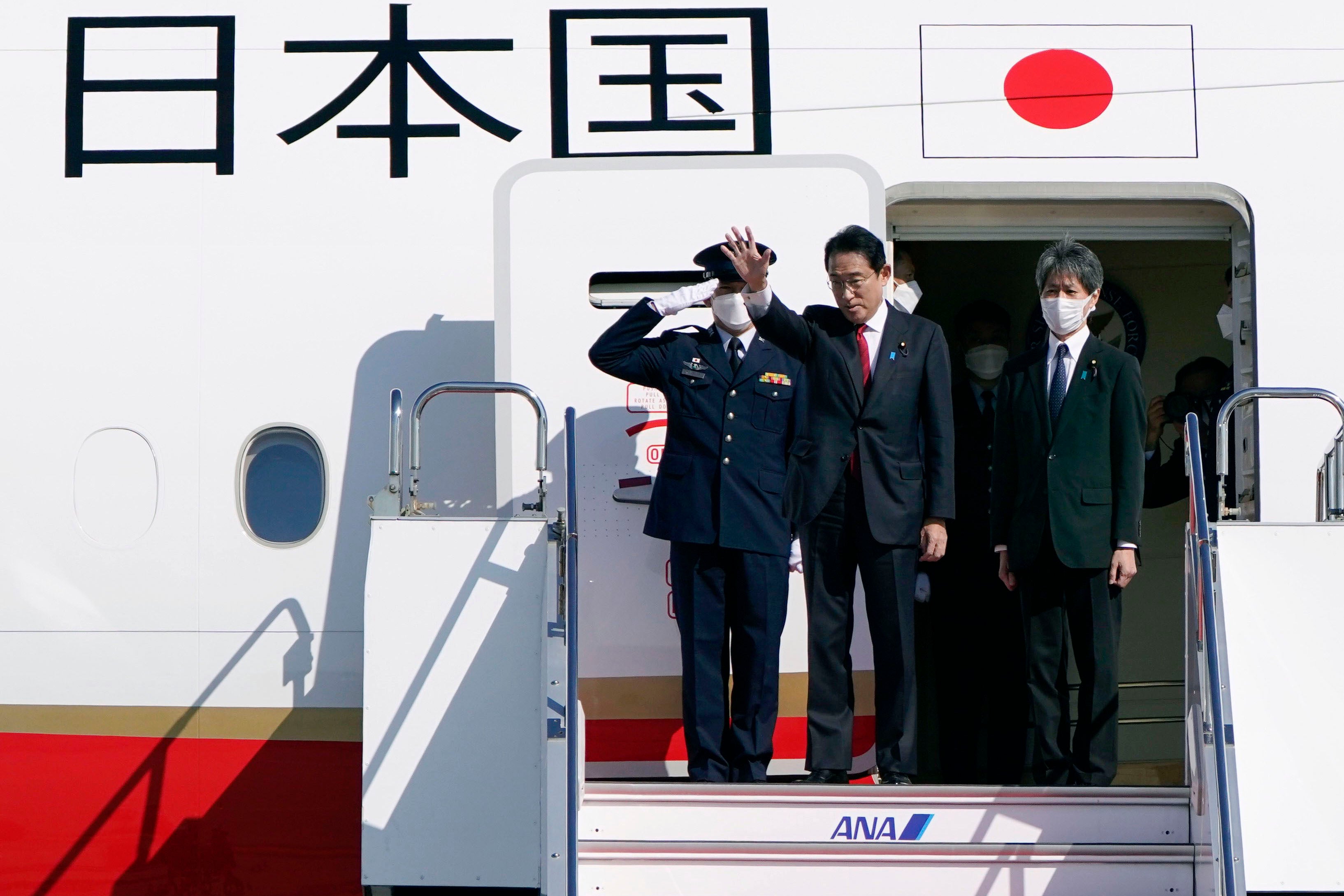Japan PM heads to Australia to step up military, energy ties
Japanese Prime Minister Fumio Kishida, who is traveling to Australia for talks with his Australian counterpart Anthony Albanese, says he wants to bolster military and energy cooperation between the two countries amid their shared concerns about China

Your support helps us to tell the story
From reproductive rights to climate change to Big Tech, The Independent is on the ground when the story is developing. Whether it's investigating the financials of Elon Musk's pro-Trump PAC or producing our latest documentary, 'The A Word', which shines a light on the American women fighting for reproductive rights, we know how important it is to parse out the facts from the messaging.
At such a critical moment in US history, we need reporters on the ground. Your donation allows us to keep sending journalists to speak to both sides of the story.
The Independent is trusted by Americans across the entire political spectrum. And unlike many other quality news outlets, we choose not to lock Americans out of our reporting and analysis with paywalls. We believe quality journalism should be available to everyone, paid for by those who can afford it.
Your support makes all the difference.Japanese Prime Minister Fumio Kishida, who is traveling to Australia for talks with his counterpart Anthony Albanese, said Friday he wants to bolster military and energy cooperation between the two countries amid their shared concerns about China.
Kishida said he hoped to update their 2007 bilateral security pact to factor in the progress they've made and further promote their partnership.
Australia's liquefied natural gas and coal exports are key to a stable energy supply for resource-scarce Japan, and Kishida said he hoped to discuss the future of Japanese resources and energy stability with Albanese.
“For Japan, Australia is an important country that we share universal values with, such as freedom and democracy, as well as strategic benefits, and it is an important country from the resource and energy point of view,” Kishida said before boarding his flight to Perth.
“Australia is our special strategic partner," Kishida added, noting that Australia is a key member of the Quad dialogue that also includes the U.S. and India, and was established to discuss regional security and economic issues as a counter to China's growing influence.
Japan and Australia, both U.S. allies, share a largely similar vision for regional security and Japan hopes to elevate its cooperation with Australia. The leaders are planning to issue a possible new declaration on security cooperation that would reinforce the 2007 pact looking ahead to the next decade, a Japanese Foreign Ministry official said on condition of anonymity, citing protocol.
The pact committed the countries to regional and global peace and stability as well as cooperation on counterterrorism and rebuilding Iraq after the 2003 war.
Kishida and Albanese will also consider further implementing the Reciprocal Access Agreement, a security pact Kishida struck in January with then-Australian Prime Minister Scott Morrison that removes obstacles to holding joint military exercises in either country, officials said.
Amid China's growing assertiveness in the region, Japan has been expanding its military cooperation in recent years beyond its only ally, the U.S., and forged close ties especially with Australia. Tokyo also has developed defense ties with other countries in the Asia-Pacific region and Europe.
Kishida, after his arrival late Friday in Perth, will hold talks with Albanese on Saturday before he meets with Japanese and Australian business representatives, visits a facility related to green energy and meets with Japanese residents before heading back to Japan late Saturday, according to Japan's Foreign Ministry.
Japanese officials also noted the significance of Kishida's meeting in Perth, the capital of Western Australia state, which exports most of the country's LNG. The two leaders will also discuss cooperation in other energy sources such as ammonia and hydrogen, they said.
Japan depends on Australia for nearly 40% of its LNG. Japan is desperately seeking to secure a stable energy supply amid global disruption due to the Ukraine war.
___
Associated Press writer Rod McGuirk in Canberra contributed to this report.